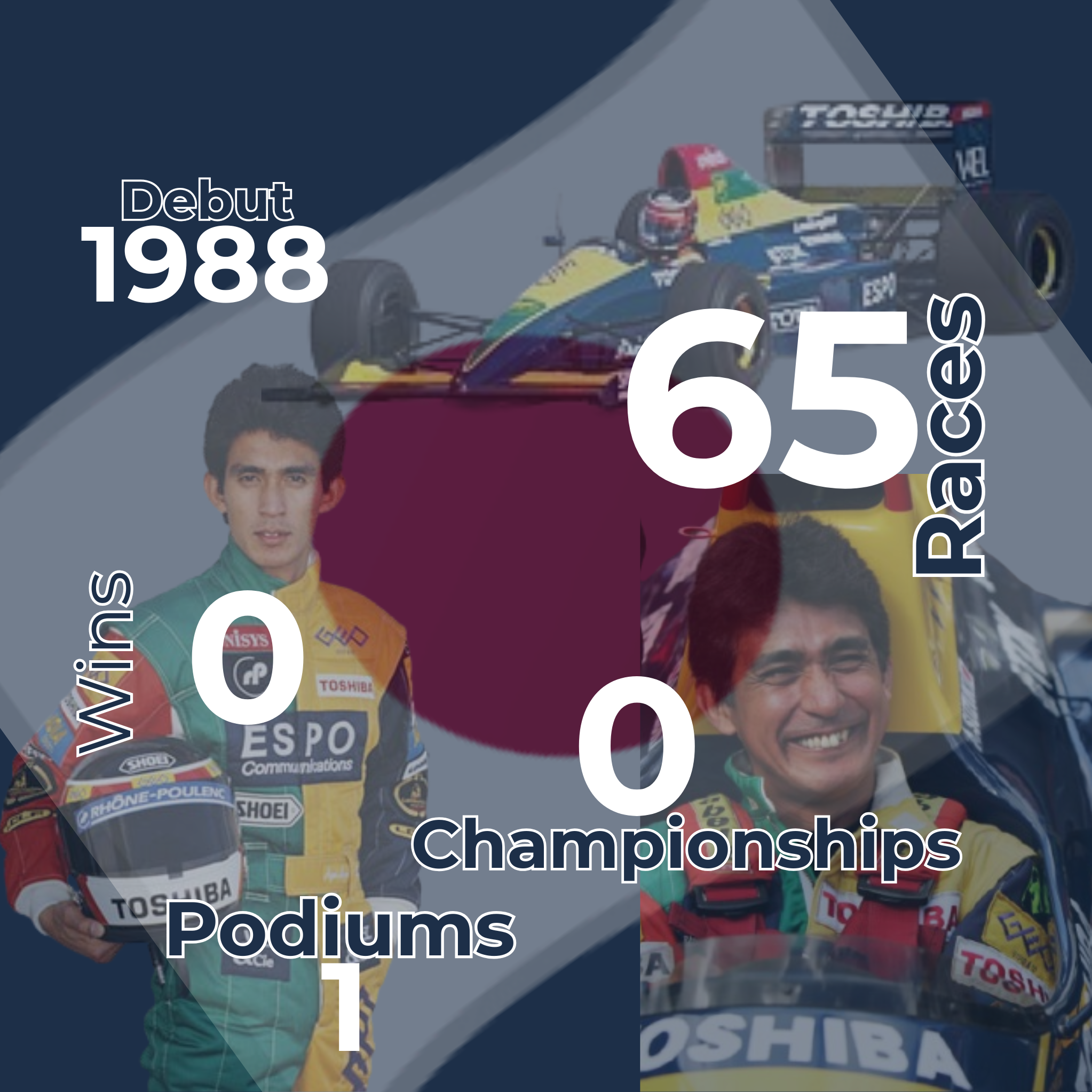 Sportiz
Sportiz
 Sportiz
Sportiz

Aguri Suzuki is a Japanese Formula 1 driver who competed in 65 race starts with one podium finish during his career.
This Japanese motorsport competitor presents a fascinating challenge for Formula 1 enthusiasts. Racing drivers from Japan were relatively rare in the sport's history, making nationality a strong identifying clue. The combination of Asian representation in a European-dominated sport creates an intriguing guessing scenario.
With 65 race starts and a single podium finish, this driver represents the solid midfield tier of Formula 1 competitors. The 1988 debut places them in the late 1980s generation, while zero wins but one podium suggests consistent performance without breakthrough victories. These statistics paint a picture of reliable competence.
Formula 1 fans familiar with Japanese drivers will find this relatively straightforward, while casual motorsport followers might struggle. Players often confuse drivers from the same era or nationality, particularly when statistical achievements fall into similar ranges.
High difficulty due to Japanese nationality in F1 (+1), pre-2000 debut (+1), and below-average win statistics (+1), making this a challenging identification for most players.
Japanese nationality immediately narrows the field significantly in Formula 1 history. The 1988 debut year places the driver in a specific era, while the single podium with zero wins creates a precise performance profile that eliminates both backmarkers and race winners.


Japanese nationality and Formula 1 career with limited podium success
Japanese F1 driver from similar era with comparable statistics
Japanese Formula 1 competitor with midfield performance levels
Think you can identify this athlete from just six clues? Play PlaySportiz now and put your sports knowledge to the test!
Play F1 Game Now